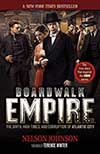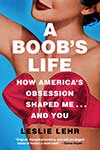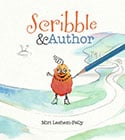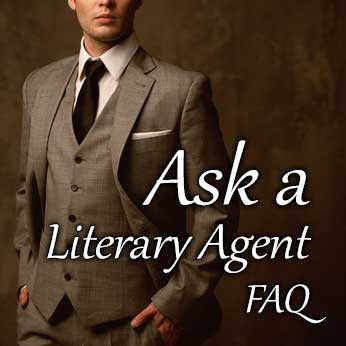What happens after you get a literary agent? This step-by-step guide will help you manage your literary agent relationship–and your expectations. It’s part of our free 15-Part Guide About How to Get a Publishing Agent.

You won’t know for sure what happens after you get a book agent until you have one. Different publishing agents do things differently. And, unfortunately, some author representatives don’t clearly explain how they work and communicate.
Due to the unwillingness of some book agents to create clear expectations, authors can find themselves confused and frustrated–left to worry and wonder about what’s going to happen next. This FAQ will help you find your way.
What Happens After You Get a Literary Agent? – FAQ

How Do Literary Agents Submit to Publishers?
How do book agents submit to publishers? It’s a seven-step process, and sending your manuscript to publishers via email or courier is just one step. The other things listed here should also happen, before and after your book is submitted to publishers.
Housekeeping – What happens after you get a literary agent?
The first thing that should happen after you get a literary agent is you getting clear expectations regarding how your book agent works and communicates. Your publishing agent should also explain how the agenting process works, if needed.
What happens after you get a literary agent? The author representative at your literary agency might discuss any or all of the following with you: their version of the steps outlined in this article; their proposed timeline for completing the steps; how, and how often, they plan to communicate with you; and how, as well as how often, they prefer you communicate with them.
Some book agents share what to expect via an email or postal mail document. Others explain everything by phone or a video call. If your publishing agent doesn’t share this information, you should ask about it. Your literary agent should be the one to initiate sharing this information. If your book agent doesn’t volunteer it, ask about it early in the relationship when your author representative will likely be most available to you.
Manuscript Changes – What happens after you get a Book agent?
After you get a literary agent, your book agent might say your manuscript needs developmental editing or copyediting. If your author representative suggests changes, they should do so before you sign an author-agent contract. However, some publishing agents won’t provide detailed manuscript suggestions until after you sign.
What happens after you get a literary agent, when it comes to manuscript changes? The reason some book agents wait until you sign an author-agent contract to provide detailed feedback regarding manuscript changes is they don’t want to share their insights and then find out you signed with a different literary agency.
If multiple publishing agents are offering to represent you, the suggested manuscript changes should be one of the things you consider when deciding which author representative to work with–before burning your bridge with the other interested literary agency or literary agencies.
It’s difficult to predict whether an interested literary agency will suggest major or minor editorial changes. Some books need more editing, some book agents are more willing to provide editorial support, and some author representatives are more skilled doing so.
After you get a literary agent, your agent might also suggest you hire a freelance editor or require you do so if they’re going to represent you. If a literary agency suggests you hire a freelance editor and it’s an editor they know, the literary agency should not get any type of referral fee or kickback from the freelance editor.
If a literary agency suggests you hire a freelance editor, you must decide if that’s something you are able to do and want to do. And, if a literary agency suggests you hire a freelance editor, they should do so before you sign an author-agent contract.
Query Letter, Book Synopsis, Book Proposal – What happens after you get a literary agent?
Authors are often required to revise their query letter, synopsis, and/or book proposal (mostly for nonfiction authors) after they get a literary agent. Most book agents send a query or cover letter to book publishers, along with a synopsis and/or book proposal (usually just for nonfiction).
What happens after you get a literary agent, with your pitch material? Literary agencies don’t usually create cover or query letters, book synopses, or book proposals from scratch for their authors to submit to publishers. Authors need to provide them, and nonfiction authors–especially–are almost always required to provide a book proposal, even if the literary agent is pitching a manuscript to publishers that’s complete.
After you get a literary agent, your book agent probably won’t require you to revise your query letter, but they might ask you for more information about your book, target market, competition, platform, or the timeliness of your project, prior to pitching book publishers. Sometimes, though rarely, publishing agents ask their writers to review their revised query or cover letter they are planning to send to publishers.
Your author representative might also require you to revise your book synopsis, and, if you’re a nonfiction author, your book proposal. That’s because book agents often have different views regarding the best way to write, organize, and format book proposals. That doesn’t mean there is something wrong with your book proposal. It might just mean your publishing agent has had success doing it their way.
Submitting to Book Publishers – What happens after you get a Publishing agent?
Books agents rarely schedule pitch meetings for their writers, during which authors can meet book publishers via phone, video call, or in-person meetings. Most of the time literary agents call publishers on the phone to pitch them. Or they email publishers they believe might be interested in a manuscript.
What happens after you get a literary agent, with publisher submissions? After you get a literary agent, your author representative probably won’t tell you how they’re going to submit your manuscript to publishers. Phone calls aren’t always needed, but successful author representatives develop relationships with book publishers. Though publishers will buy books from any book agent, they prefer buying from those they know and trust.
Some book agents send 2-3 dozen submissions, or more, to publishers. They rarely send more than that because there aren’t that many major publishers. Most publishing agents send 10-20 submissions. A small number submit their authors’ work to just a few publishers. In rare cases, author representatives submit a writer’s work to only one book publisher.
After you get a literary agent, no matter how many publishers your literary agency submits your work to, there’s a good chance they will send out more if one of the publishers targeted in the first batch of submissions doesn’t make an offer.
Some book agents send out a small first round because they do not have enough connections for your genre. Other times they believe only a small number of publishers will be interested, they believe the book might be difficult to sell, or they believe there is more than one way to pitch it. In that case, pitching the book to a small number of publishers, perhaps just one, to get feedback before submitting to more, can be smart.
Most publishing agents wait 2-3 months before sending more submissions, if they send a second batch. It can be frustrating waiting, but publishers need time to review manuscripts. They also need time, when seriously interested, to get others at their publishing houses such as marketing and publicity personnel on board before making an offer.
Status Updates – What happens after you get a Book agent?
Most book agents are less communicative than authors would like. However, your book agent should be organized and professional, and share timely updates with you regarding the status of your manuscript submissions to publishers.
What happens after you get a literary agent regarding the communication of submission status updates? Some author representatives aren’t as responsive as they should be, because they work on commission and view themselves more as “partners” in the publishing process rather than hired help. Publishing agents also tend to communicate only when they need information or action from the author, when they have an offer, or when many months have gone by without an offer.
After you get a literary agent, if many months go by without you hearing from your book agent, that doesn’t mean something is wrong. It likely means your publishing agent is simply busy and doesn’t have any significant news to report. They are simply waiting for replies from publishers.
Literary agents usually share the names of the publishers they submit a book to. However, they don’t usually share the names of the acquisition editors. That’s because some authors, if they know which editors have rejected their work, will go behind their book agent’s back and contact the editors directly to try and persuade them to reconsider.
Book Publishing Contract – What happens after you get a literary agent?
Some authors hire an attorney or literary lawyer to get feedback regarding their book publishing contract. However, most authors rely on the advice of their book agent regarding the terms the author should ask for and accept.
What happens after you get a literary agent, when you get a book contract offer? After you get a literary agent, your author representative should let you know immediately if you get a publishing contract offer. Your book agent should not, however, immediately accept the offer on your behalf.
Instead, your publishing agent should tell you if it’s likely you will get another offer(s) from another publisher(s). Most book authors only receive one offer. Your literary agent should also discuss the pros and cons of you accepting or refusing any offer you receive.
If you decide to accept the publication offer, your book agent should tell you what they think about the contract terms. Are they good, and does your publishing agent believe they can and should try to negotiate better terms? In most cases, it is best to follow your author representative’s lead.
Your book agent should be aware of what each book publisher is willing and able to change in your book contract. If you decide to hire an attorney or literary lawyer, discuss that person’s recommendations with your book agent. The only thing worse than not getting an offer is getting one and blowing it.
Can You Have More Than One Literary Agent?
Can you have more than one literary agent? Yes. But you might need to have your first agent say it is okay, in writing. Here you will find information about how to get more than one literary agent–and why that might be necessary.
What happens after you get a literary agent, if you believe you need two book agents?
The main reason an author would need more than one book agent is that the author writes more than one type of book. Most publishing agents don’t represent every book genre. So, even if your author representative has already sold one or more of your books to a publisher, they might not be willing or able to sell all your books.
Book agents are knowledgeable about specific book genres, and they have relationships with publishers who publish those types of books. If you write something different, your book agent might figure out who to pitch for that book and do so. And they might not. If they don’t, they’ll likely give you their blessing to query other publishing agents for that book, and you might end up having more than one publishing agent.
My Literary Agent Ignores Me
If your literary agent ignores you after you you get a literary agent, you should be frustrated. Try not to get negative, bossy, or aggressive though. Follow up. And while you’re waiting for a reply, do these things to stay positive and productive.
What happens after you get a literary agent, and your book agent ignores you or isn’t very communicative?
- Be patient. It might take 1-12 months or more to find a home for your book. It usually takes 3-9 months.
- Stay positive. Literary agencies only make money when they sell books, so they try hard to sell books–though not as fast as most authors expect. Don’t pressure your publishing agent or try to guilt-trip them. Don’t let your insecurity or lack of knowledge of industry norms lead to you sabotage your success, and have your literary agency terminate your relationship.
- Don’t obsess. It is not healthy for your writing to be the only thing that gives your life meaning. Do other things while waiting.
- Don’t be high-maintenance. Don’t come up with creative reasons to email your author representative such as to share an article or something minor that happened recently. Don’t call either, unless you’ve sent multiple emails that haven’t been replied to. As much as possible, save your questions, ideas, and minor updates. Share them when your book agent contacts you. But if you haven’t heard from your publishing agent in 2-3 months, you should ask for a status update. Thank your author representative for their support, and ask if there’s any news or anything you can do to help.
- Write your next book. If your literary agency can’t sell your book, your existing book agent might try to sell your next book–if it is ready–by the time all options for the first book have been exhausted.
Changing Literary Agents
Changing literary agents is not something new authors usually think about, but sometimes, after you get a publishing agent, it’s necessary. Here are some tips to help you decide if switching literary agents is a good idea, and how you should handle it.
What happens after you get a literary agent, if you want or need to change book agents?
Most authors would prefer to find their dream literary agent, sign a contract with them, and be represented by them for the duration of their writing career. However, you might find yourself in one of the following situations, which might cause you to think about changing publishing agents.
Your book agent:
- Isn’t respectful
- Isn’t making you a priority
- Is slow to respond to messages
- Has become completely noncommunicative
- Isn’t performing at the level you’d like, in some other way
Switching literary agents isn’t easy, but sometimes it’s necessary. Just make sure you think twice before querying other author representatives with the goal of changing book agents, without first telling your current book agent.
That is the expected etiquette.
How to Terminate a Contract With a Literary Agent
If you want to know how to terminate your contract with a literary agent, keep these four things in mind and be polite. Even if your publishing agent did something unprofessional, you might need valuable information from them. Keep things civil.
- Check your contract to see what the termination clause requires.
- Follow the termination clause requirements, such as communicating your desire to terminate the relationship in writing.
- Request “split payment” be set up so you will get paid directly by your publisher(s) going forward. Follow up if needed with your book agent and publisher to get confirmation the split payment has been set up successfully.
- Request any needed information, such as a list of publishers and/or acquisition editor names your manuscript has been sent to, if the agent has not yet sold your book.
Before you terminate your contract with a publishing agent, keep in mind that you likely will not be able to get a new book agent to represent your book if your first literary agent already pitched it to publishers. Consider setting up a Literary Agent Advice coaching or consulting session to help weight the pros and cons of looking for new author representation if you are in that situation.
My Literary Agent Dropped Me
If your literary agent dropped you, you might be able to get a different publishing agent to represent you. This is true if you’re already published with a publisher, and it is true if you are not yet published with a publisher.
What happens after you get a literary agent, and your book agent drops you? Consider doing the following:
- Request a referral to another book agent if the split is a “friendly” one caused by your publishing agent retiring, etc.
- Request any needed information, such as a list of publishers and/or acquisition editor names your manuscript has been sent to–if the agent hasn’t yet sold your book.
- Thank your publishing agent for their attention, effort, and support during your time together–if your time together was positive and productive.
- Get emotional support from someone who cares about you, if needed.
- Don’t let your book agent dropping you derail your publishing dreams. Start querying different agents.
This article about what happens after you get a literary agent was written by former publishing agent turned author coach Mark Malatesta, creator of The Directory of Literary Agents, host of Ask a Book Agent, and founder of Literary Agent Undercover and The Bestselling Author.
Mark has helped hundreds of writers get offers from book agents and/or traditional publishers. Authors of all Book Genres have used our Literary Agent Advice coaching/consulting to get the Best Literary Agents at the Top Literary Agencies on our List of Literary Agents.
What Happens After You Get a Literary Agent? – Next Steps
Now that you know what happens after you get a book agent, click here to:
- See our free 15-Part Guide About How to Get a Book Agent.
- Visit our Ask a Publishing Agent page, where you’ll find a complete list of questions and answers about finding and getting a book agent.












 MARK MALATESTA is a former literary agent turned author coach. Mark now helps authors of all genres (fiction, nonfiction, and children's books) get top literary agents, publishers, and book deals through his company
MARK MALATESTA is a former literary agent turned author coach. Mark now helps authors of all genres (fiction, nonfiction, and children's books) get top literary agents, publishers, and book deals through his company 